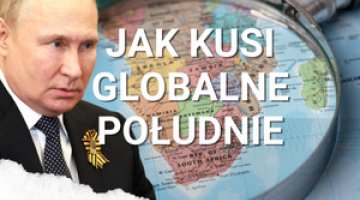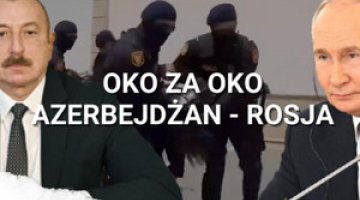Ideological confrontation and pragmatic cooperation – Moscow’s recipe for its relations with Washington
Russia’s Foreign Minister Sergei Lavrov used his first meeting with the new US secretary of state John Kerry (on 26 February in Berlin) to signal Russia’s readiness to resume pragmatic cooperation with Washington. However, Lavrov’s positive message to President Barack Obama’s new administration coincided with a wave of Russian accusations – which at times have taken on the nature of an anti-American campaign – about the abuse of adopted Russian children in the United States, in the face of US government inaction.This contrast is a consequence of the duality which now characterises the Kremlin’s policy towards the US. On one hand, Russia is demonstrating a willingness for pragmatic partnership with the United States in the international arena; yet on the other, it remains strongly critical of the US on political issues, including those related to human and civil rights.
The rationale of the Kremlin’s US policy
The Kremlin’s current policy towards the United States is based on four fundamental assumptions, which are derived from a specific interpretation of the political situation in Russia and in the world in 2011-2012. The first premise is the current leadership’s awareness, due to the wave of political protests which swept through Russia at the turn of 2012, that it faces serious problems with the legitimacy of its rule. The second is the belief that Washington is at least trying to support the anti-system opposition, even it did not inspire them directly, and thus is seeking to change the political system in Russia. In this context, the ‘Magnitsky Act’ adopted by the US Congress in November 2012, which provides for sanctions against Russian officials suspected of human rights violations, has been interpreted in Moscow as an attempt to create a mechanism of pressure on the Russian elite, in order to weaken their loyalty to the Kremlin. Thirdly, the so-called ‘Arab spring’ has created in the Russian power elite a feeling that the international situation is undergoing growing destabilisation, as well as the fear that the Arab example may have a destabilising effect on the internal situation in Russia, whereupon some Russian elites have at least the suspicion that the ‘Arab spring’ was artificially provoked and controlled by the US secret services. Fourthly, the prevailing view in Russia is that the balance of power in the international arena is undergoing radical change, involving the weakening of American power and an increase in the importance and strength of new, principally Asian powers. In addition, the prevailing view in Moscow is that in the face of a number of serious difficulties at home and abroad, the Obama administration might prove to be so weak that it will be forced to accept Russian conditions for mutual cooperation.
The Kremlin’s strategy: Confrontation ...
The Russian government’s actions and rhetoric suggest that, starting from the diagnoses outlined above, it has formulated the following strategy. Firstly, it is seeking to restrict the United States’ influence on internal processes in Russia. In September 2012, the authorities prevented the US government’s international aid foundation USAID from continuing its operations in Russia. In December 2012, the Duma adopted a law entitled ‘On measures to be applied against individuals involved in the violation of basic human rights and freedoms, rights and freedoms of the citizens of the Russian Federation’ (known as the ‘Dima Yakovlev Act’) which, inter alia, barred Russian non-governmental organisations that are involved in political activity from receiving US grants or from employing American citizens in managerial positions. Furthermore, in retaliation for the ‘Magnitsky Act’, the bill provided for sanctions against US state officials suspected of human rights violations, especially when the victims are Russian citizens. The Kremlin further announced plans to ban Russians who hold public office from owning property abroad and keeping funds in foreign bank accounts.
The second element of the Russian strategy was to signal its dissatisfaction with Washington by terminating or failing to renew bilateral cooperation agreements, one of which concerned the safety of fissile material (the so-called Nunn-Lugar programme), and another the fight against drug trafficking. In addition, an embargo was introduced on imports of American meat (except poultry), on the pretext of the presence of ractopamine (a feed additive).
The third part of the Kremlin’s strategy is a counter-offensive in the area of human rights. This is in fact addressed to the West as a whole, but for now its main target is the United States. Since about the middle of last year, this counter-offensive has focused on the treatment of Russian children adopted by US citizens. Russian officials have publicly claimed that children in the United States from Russia have been systematically ill-treated (and even killed), to the indifference of the US authorities. In December 2012, the ‘Dima Yakovlev Act’ banned adoptions by American citizens.
Making the case of adopted children one of the main topics of bilateral relations with Washington seems to have a dual purpose. Firstly, this subject is an ideal instrument to stimulate anti-American sentiment in Russian society and for the Kremlin to consolidate its political base. Secondly, it serves as a response to the rising tide of allegations of human rights violations in Russia, with which its international partners have been charging the Russian government.
...and cooperation
At the same time, however, Russian diplomats have signalled their readiness to cooperate with Washington, while setting conditions under which such cooperation could take place. Moscow seems to believe that Washington should be more interested in mutual interaction than the Kremlin is, and it should therefore accept Russia’s terms. The questions upon which Moscow would be ready to co-operate include the further reduction of nuclear arsenals and the resolution of regional crises (Afghanistan, Syria, and the nuclear dossiers of Iran and North Korea).
However, Russia has made negotiations on nuclear reductions conditional on obtaining a guarantee that NATO’s missile defence system will not be aimed against Moscow’s nuclear potential. As for co-operation on Syria, Russia has made that strictly conditional on the adoption of its vision for a solution to the problem, by means of negotiations between Bashar Assad and the Syrian opposition.
Another element of Russia’s strategy is to try to develop economic ties which would create a pro-Russian lobby in the United States, that would be sufficiently influential to ‘protect’ bilateral relations from political shocks, especially those caused by differences in the area of human rights. This is the context in which one should interpret the signature in August 2011 of a strategic partnership between the Russian state oil company Rosneft, led by Igor Sechin – one of Vladimir Putin’s closest associates – and the US multinational ExxonMobil, which resulted in the signing last April and July of specific joint venture projects to extract oil in the Russian Arctic and North America.





